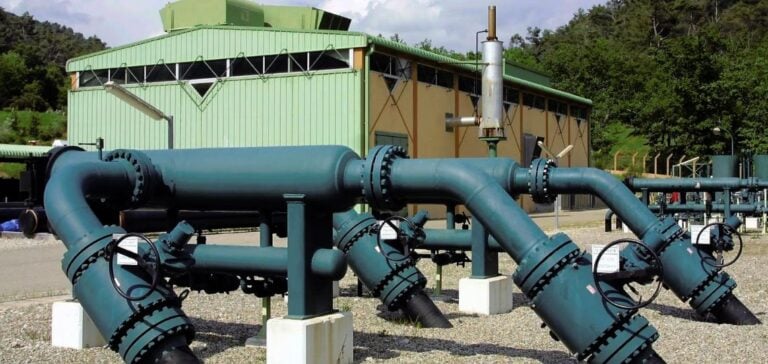Lhyfe recently delivered 350 kg of hydrogen to Géométhane for an experiment in Manosque, Alpes-de-Haute-Provence. This delivery, carried out on June 13, aims to assess the feasibility of storing hydrogen in salt caverns, a technique already used for natural gas.
A Pioneering Experiment
Géométhane, a specialist in natural gas storage, is using salt caverns for this new experiment. The injectedhydrogen will be observed for several weeks to analyze its behavior and stability under these specific conditions. This test is crucial in determining the effectiveness of this energy storage method.
Energy Management Optimization
Hydrogen storage in salt caverns optimizes energy management by balancing production and consumption. This method offers greater flexibility, enabling us to respond to variations in energy demand. The ability to store and release energy as needed is a strategic advantage for companies in this sector. Matthieu Guesné, founder and CEO of Lhyfe, emphasized the importance of this experiment in exploring new storage solutions. “Salt-cavity storage could become a key method for large-scale hydrogen management,” he said.
Lhyfe and Géométhane: Key players in the sector
Lhyfe, with its multiple production sites across Europe, is a major player in the production of renewable hydrogen. Since the inauguration of its first industrial production site in 2021, the company has continued to expand its operations to meet the growing demand for hydrogen. Géométhane, based in Manosque since 1993, plays a central role in the energy supply of the southern region. The aim of this new experiment with Lhyfe is to assess the economic and technical viability of hydrogen storage, with a view to its possible application on a larger scale. The collaboration between Lhyfe and Géométhane represents a significant step forward for the energy sector, offering promising prospects for more flexible and efficient management of energy resources.






















